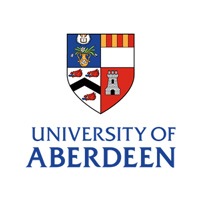fees waived
Civil Engineering, MEng (Hons)
University of Aberdeen, United Kingdom
Ranking in UK
General Engineering
General Engineering
Civil Engineering
Costs
food & rent S$17.2K / year
Entry requirements
Scholarships
Limited quantity
Information
Code
Intakes
Website (External)
Programmes
Information
Duration
2031
Civil Engineering involves designing, constructing, and maintaining critical infrastructure such as roads, railways, dams, power stations, hospitals, and environmental protection systems. It emphasizes sustainable practices to improve society, protect natural environments, and address challenges like climate change, while enhancing quality of life through innovative techniques and materials.At Aberdeen, students learn from experts in fields like fluid mechanics and structural engineering, supported by advanced facilities. The program starts with general engineering in the first two years, allowing specialization thereafter. Our accredited BEng degrees meet requirements for Incorporated Engineer status, with options to extend to MEng. Ranked 12th in the UK for General Engineering, we foster strong industry connections through lectures, placements, and scholarships.
The first two years cover general Engineering, with elements of Chemical, Mechanical, Petroleum and Electrical/Electronics, as well as Civil. In the later years you specialise, following your chosen discipline in greater depth. You do not need to finalise your choice of specialisation until you begin third year. It is possible to move between MEng and BEng and this can be accomplished at any point until the second half session of fourth year. Successful BEng candidates will be offered the chance to change to the MEng and there is no quota, meaning that if grade requirements are met that transfer is guaranteed.
A local representative of University of Aberdeen in Singapore is available online to assist you with enquiries about this course.

